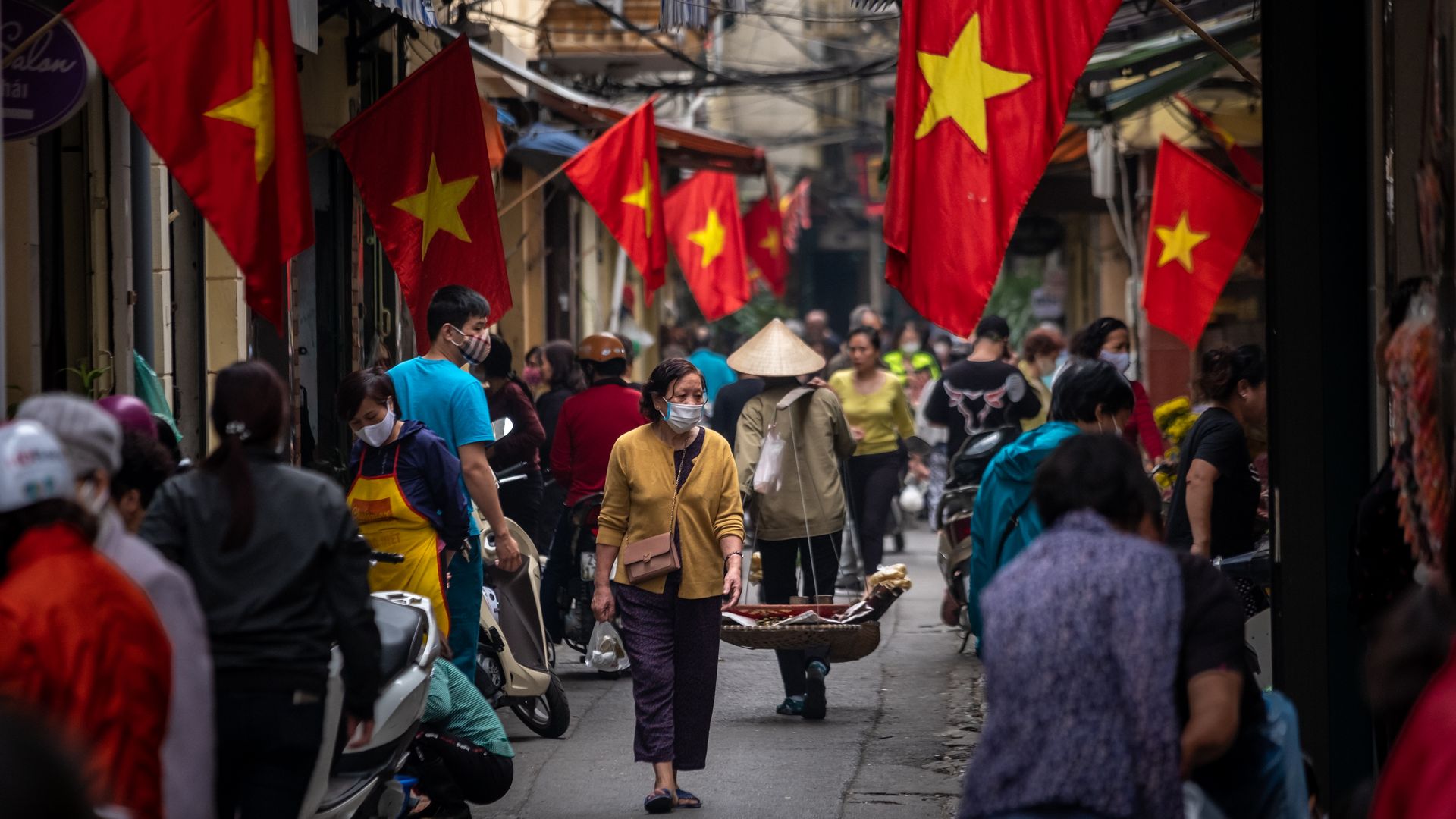Vietnam could be a rare winner from the coronavirus pandemic
Add Axios as your preferred source to
see more of our stories on Google.

Hanoi in March. Photo: Linh Pham/Getty Images
It’s hard to say which is more remarkable: that Vietnam has recorded zero COVID-19 deaths despite a population of 96 million, or that the communist government expects the economy to grow by 5% this year during a massive global recession.
Why it matters: Both numbers deserve some scrutiny, but there’s no evidence a major outbreak is being covered up, and the bullishness about Vietnam’s economy is shared by the IMF and World Bank (though their growth estimates are lower). The southeast Asian country may ultimately be the pandemic’s biggest success story.
How it happened: Vietnam shares a border and deep economic links with China, and recorded its first case on Jan. 23.
- It quarantined an affected region near Hanoi in mid-February, and quickly scaled up an impressive contact tracing regime, knowing it lacked the resources to conduct mass testing.
- The government distributed information about the outbreak via text message, and told Vietnamese it was their patriotic duty to wash their hands and self-isolate.
- “The steps are easy to describe but difficult to implement, yet they’ve been very successful at implementing them over and over again,” Matthew Moore, a CDC official based in Hanoi told Reuters.
Zoom in: Vietnam is a surveillance state, where citizens are monitored online and by "standing armies of neighborhood wardens and public security officers who keep constant watch over city blocks," Bill Hayton and Tro Ly Ngheo write in Foreign Policy.
- “The structures that control epidemics are the same ones that control public expressions of dissent," they write.
- Hundreds of people have been fined for causing “unnecessary panic” or undermining the “national unifying cause” through their social media posts, Global Voices reports. At least three have been jailed.
The big picture: Like China, Vietnam has since the late 1980s paired political repression with economic liberalization.
- It brought extreme poverty down from above 50% to near-zero in that time, and over the last decade has seen the second-fastest economic growth in the world, behind China.
The pandemic has punctured most other formerly fast-growing economies in the developing world, but not Vietnam's.
- Vietnam has had some luck, says Jacques Morisset, the World Bank’s Program Leader for Vietnam. Demand for its chief commodity export, rice, has only grown during the pandemic.
- The government also started from a strong position — in sound fiscal health and with emergency funds ready to be tapped.
- When the pandemic struck, it acted “with a combination of foresight and pragmatism” and “no sense of panic,” says Morriset.
Where things stand: Vietnam’s economy is benefiting on at least two fronts: it was one of the first in the world to re-open with few restrictions, and it was already enjoying a flood of investment as companies like Apple shifted manufacturing to hedge against over-reliance on China.
- Vietnam is also expediting some major infrastructure projects as part of its coronavirus stimulus, the FT reports.
- One sector that has been hit is tourism, which accounts for 9% of GDP. The government plans to resume flights soon, but only for countries that have had no new cases for 30 days.
The bottom line: This pandemic's success stories include authoritarian states like Vietnam as well as democracies like Australia, Germany and South Korea.
- They're aligned not by style of governance but early, competent action — and a bit of luck.
Go deeper:
